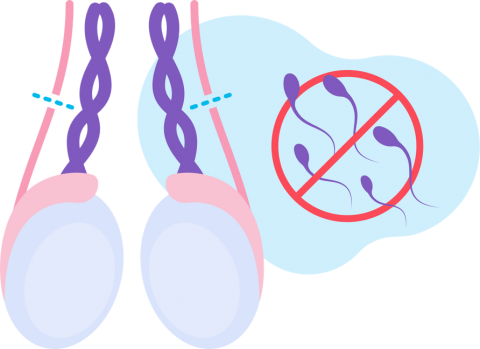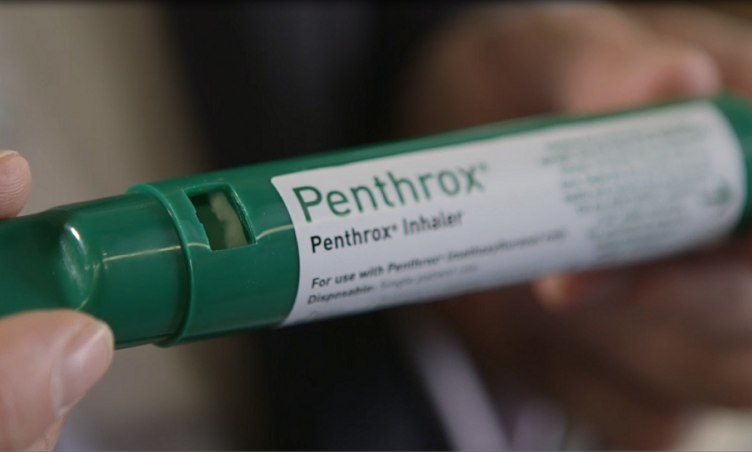5 Vasectomy Myths

A vasectomy is an operation that prevents sperm travelling from the testicles to the penis.
It is done by cutting the tubes (vas deferens) that allow sperm to leave the testicles. It is more than 99.85% effective at preventing pregnancy! It’s a straightforward procedure that costs less and has less possible side effects than current contraceptive options for women and people with uteruses.
 The vas deferens are cut and tied, or sealed, to prevent sperm from travelling from the testicles to the penis.
The vas deferens are cut and tied, or sealed, to prevent sperm from travelling from the testicles to the penis.
Despite this, it remains an underutilised form of contraception. This is demonstrated by higher rates of tubal ligation than vasectomy, even though vasectomy is a simpler, shorter and safer operation (and often, much cheaper!). This is probably because there are still many myths surrounding vasectomy. So, if know you don’t want to have children, we present some myth busting facts:
- Myth One: A vasectomy kills your sex drive / erections
False! A vasectomy will not change your sex drive, your sexual desires, or your ability to have erections and ejaculate! A vasectomy does not remove your testes, which is where testosterone is produced, so your testosterone levels will remain unchanged. It simply redirects sperm by cutting the vas deferens so that it can’t mix with semen. The only thing that will change is that your semen will no longer have any sperm in it. Erections are a result of good blood flow to the penis, so this is not affected by a vasectomy. - Myth Two: It’s extremely painful, and so is the recovery
False! Vasectomies are generally not painful. The procedure itself usually only takes around 15 minutes. Each person is different, but after local anaesthetic it should only feel like slight tugging. You may feel a dull ache after the anaesthetic wears off, but icepacks and over-the-counter medication should do the trick. Recovery usually takes a week! - Myth Three: I won’t have any ejaculation (cum) afterwards
False! Less than 3% of ejaculate (semen) is made of sperm, so you’ll pretty much ejaculate the same amount of fluid! - Myth Four: Vasectomies fail anyway
False! With new technological advances and improved techniques, failure rates for vasectomies are around 0%. However, it usually takes around 10-20 ejaculations to clear sperm completely after the procedure. Vasectomy does not result in immediate infertility, so another form of contraception must be used, for around three months, until sterility is confirmed by semen analysis. - Myth Five: If I change my mind, it’s not reversible
This depends! A vasectomy can be reversed by reconnecting the vas deferens. However, it is a difficult procedure. The success rate depends on how long it has been since the initial vasectomy, how it was done, and the person’s overall health. Regardless, a vasectomy would not be a recommended method of contraception if you are wanting children in the future.
If you’re still not convinced, there’s also evidence to suggest that once someone has had a vasectomy, sex is more enjoyable – because there’s no anxiety about possible pregnancy! So if you know you don’t want to parent, vasectomy could be the right permanent contraception option for you.
To search for vasectomy services near you, contact 1800 My Options on 1800 696 784 (weekdays, 9am – 5pm) or search our database online.






